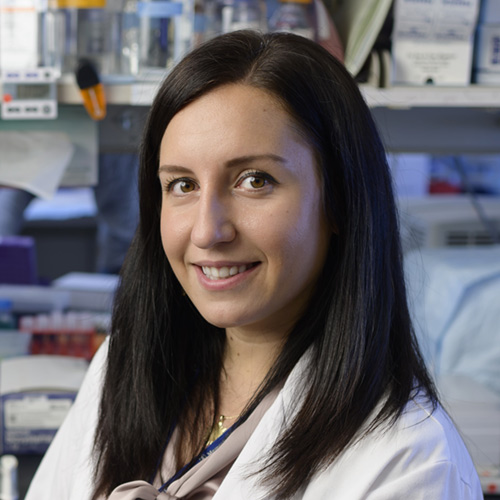Discovery and Validation of Splicing and Gene Expression Programs in Cancer
Oncogene-mediated signaling is a known driver of tumorigenicity in cancer. The PI3K pathway plays an important role in many disease states, given that the aberrant hyperactivation of this pathway, contributes to cancer progression, as well as to treatment resistance in multiple tumor types. The role of the PI3K pathway on signaling and protein translation has been defined by several seminal studies published in the last two decades. However, how oncogenic signaling controls transcription and post-transcriptional processes such as splicing to mediate tumorigenesis remains largely unexplored terrain. In this project, we propose to computationally analyze and functionally characterize the transcriptional and splicing programs downstream of the oncogene-mediated signaling across PI3K-driven cancers. We will identify differential genes expressed, transcription factor activities, and splicing alterations governed by hyperactive PI3K pathway. Additionally, we will build transcriptomic signatures of PI3K-mediated aberrant splicing programs, which may predict for a robust biomarker signature of PI3K activation and transformation. The most significant candidates across a large number of cases will be prioritized for functional validation using preclinical and clinical models. A thorough investigation of these new connections will be important to improve our understanding of how PI3K regulates a myriad of biological processes, critical in cancer and therapeutic response.
Initial Findings
Final Report
Our grant from the ICI fund allowed us the financial flexibility to pursue a high-risk project on performing a comprehensive evaluation of how the PI3K signaling pathway controls transcriptional and co-transcriptional processes in cancer. We first focused on breast cancer where this pathway is the most frequently altered. We have benefited from this grant greatly, and this work culminated in a primary research article:
“The oncogenic PI3K-Induced Transcriptomic Landscape Reveals Key Functions in Splicing and Gene expression Regulation” (Ladewig et al, Cancer Research, 2022)
A commentary on this work was published: PI3King the Environment for Growth: PI3K activation Drives Transcriptome Changes That Support Oncogenic Growth (Craidge and Hopkins, Cancer Research, 2022)
Dr. Toska and Dr. Leslie are co-corresponding on this paper together with Dr. Scaltriti.
Based on the stated aims of the grant, computational data on the transcriptomic and alternate splicing analysis of cell lines and breast cancer patients are fully described and available in the Cancer Research manuscript. A visual representation of each gene, its isoforms, exonic bins, and junctions was output as an HTML for manual inspection at https://erikla.github.io/PI3K/. We believe that the atlas of PI3K-mediated splicing programs in breast cancer will be an important resource to the PI3K community.
Dr. Toska was also the winner of the annual AACR Cancer Research Early Career Award 2023. Dr. Toska was selected based on the committee’s evaluation of the published article “The oncogenic PI3K-Induced Transcriptomic Landscape Reveals Key Functions in Splicing and Gene expression Regulation” where originality, impact, and overall significance was measured. An interview of Dr. Toska and the Cancer Research Editorial Director will take place at the 2023 AACR annual meeting.


